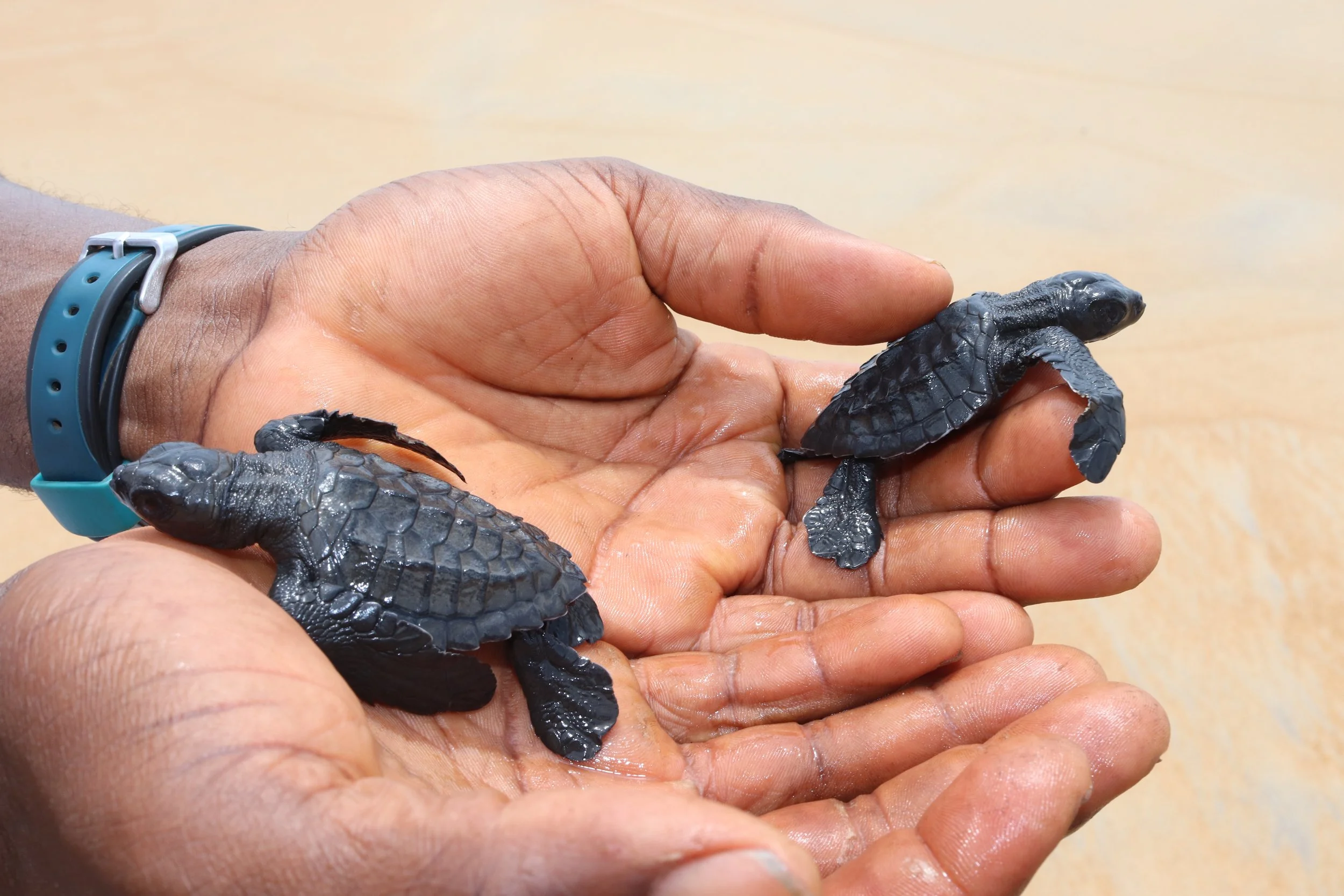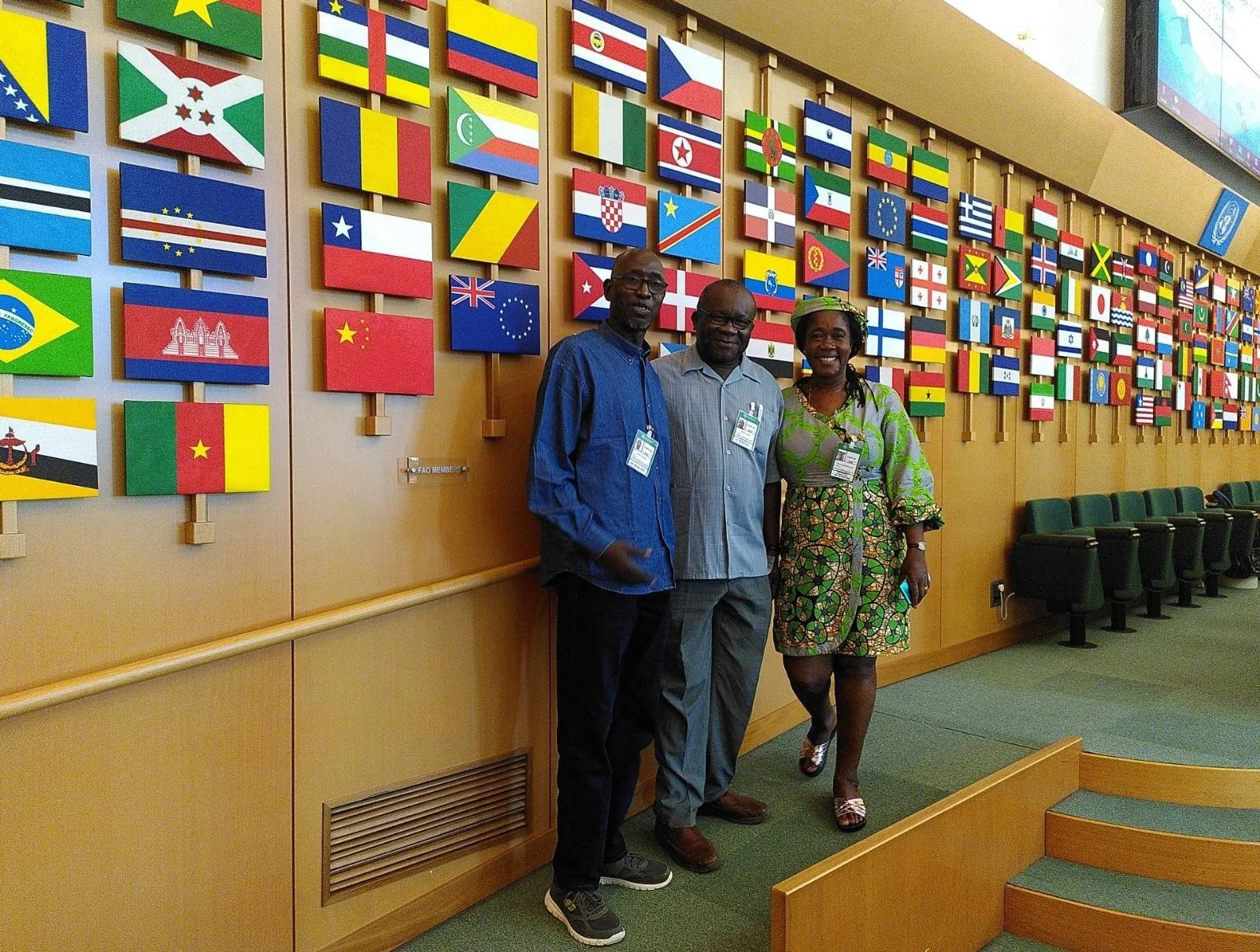The FAO organised a workshop in Accra (Ghana) from 5 to 7 December on the theme: "Optimising food and nutritional security and the benefits of small pelagic species production in sub-Saharan Africa". In a joint presentation, CAOPA and CFFA warned of the impact of the decline in sardinella in West Africa on fishers, women fish processors and consumers.
UNOC 2025: Fishers’ Call to Action raises global attention
African countries to develop guidelines for the negotiation of fair and transparent fisheries agreements
Lövin: "In the CFP there are provisions for prioritizing giving fishing access to those that fish in the most responsible way"
CFFA commits to fishers rules of conduct and encourages others to follow suite
The Coalition marks its support to the document by a letter to CFFA’s main partner, CAOPA, and pledges to abide by it in its work with artisanal fisheries organisations. By this action, the network wishes to lead by example so that other partners wishing to support small-scale fishing apply these standards too.
Côte d'Ivoire: "Thanks to this refrigerated container, women processors and fishmongers in San Pedro are able to get by"
Two years after receiving funding from the EU-Côte d'Ivoire SFPA to buy a refrigerated container, we examine how the women of the Société Coopérative de Femmes Mareyeuses Grossistes et Détaillantes in the fishing port of San Pedro are faring. Beyond fish preservation, enabling women to become autonomous remains a challenge.
Senegalese small-scale fishers denounce the granting of new fishing licences
Accused of greenwashing and opacity, the French company Olvea replies. Is it convincing?
The discussion on Olvea’s role in the exploitation of West Africa small pelagics for fishoil comes as the OECD’s Guidelines for Multinational Enterprises on Responsible Business Conduct have recently been updated and strengthened, to ensure responsible business conduct regarding their impacts across areas such as climate change, biodiversity and supply chain due diligence
Artisanal Fishing Local Councils “CLPA”: the fight to preserve the marine ecosystem
Since 2010, Senegal has set up CLPAs as a fisheries co-management system. They aim to resolve problems at local level and involve fishers in monitoring, control, and surveillance. However, there is a lack of resources for this system to be implemented effectively. An article by journalist Paule Kadja Traoré.
"The European Union must be credible and demonstrate that EU taxpayer’s money is well spent in support of sustainable fishing”
From 8 different African countries, representatives of coastal fishing communities participated to a seminar on the external dimension of the CFP hosted by the EU Long Distance Fisheries Advisory Council (LDAC) in Sweden and then travelled to Brussels where they exchanged with decision-makers from the Commission and the European Parliament.
Indian Ocean fishers and civil society call for more transparency and diligence in the management of tuna stocks
OLVEA imports fish oil from West Africa: Greenwashing in action, transparency at a standstill
An episode of ARTE's investigative magazine Sources, entitled “Salmon: a story of smoke and mirrors,” traces the journey of fishmeal and fish oil produced in Mauritania coming to Europe.
Destructive and polluting Deep Sea mining should not get the green light, say fishers
Cacophony over Cameroon - EU sanctions the country for IUU whilst supporting a value chain involved in IUU
Industrial fishing operations in Cameroon’s waters are dominated by trawlers of foreign origin in joint ventures with local entrepreneurs where 83% of these vessels have been found to be connected to entities in China. These trawlers are allowed to exploit fish stocks beyond 3 nautical miles of the coastline, including the highly prized shrimps.
“Nothing about us without us”: fishers draft rules of conduct for how to work with them to save the oceans
"Conservation is not for conservation's sake. Conservation is for us: we need a fair place for communities."
Driven by a local NGO, which is committed to community development as well as turtle protection, Côte d'Ivoire's first marine protected area (MPA) is an example of how conservation can be achieved while respecting the rights and access of artisanal fishing communities to their traditional fishing grounds.
To go far, you have to be together. The Ivorian women in artisanal fisheries can tell you how
This article by Andréa Durighello analyses, through the example of the Ivory Coast, the value of women's cooperatives and associations in African artisanal fisheries: in the professionalisation of the trade, in strengthening capacities, in representing women in professional organisations and, above all, in responding unitedly to the hazards of life.
The number of deaths of African artisanal fishers is devastatingly high, says new research
China's capture of Ghana's fishing industry is threatening food security
Even though it is illegal for foreign vessels to fish in Ghana, over the last decade Chinese-owned vessels have proliferated. Journalist Kwabena Adu Koranteng investigates how business people well connected with power act as fronts for Chinese fishing industry. Ghana loses 50M€/year but more concerning is the fact that severe overfishing is impacting food security and nutrition in the country.




















